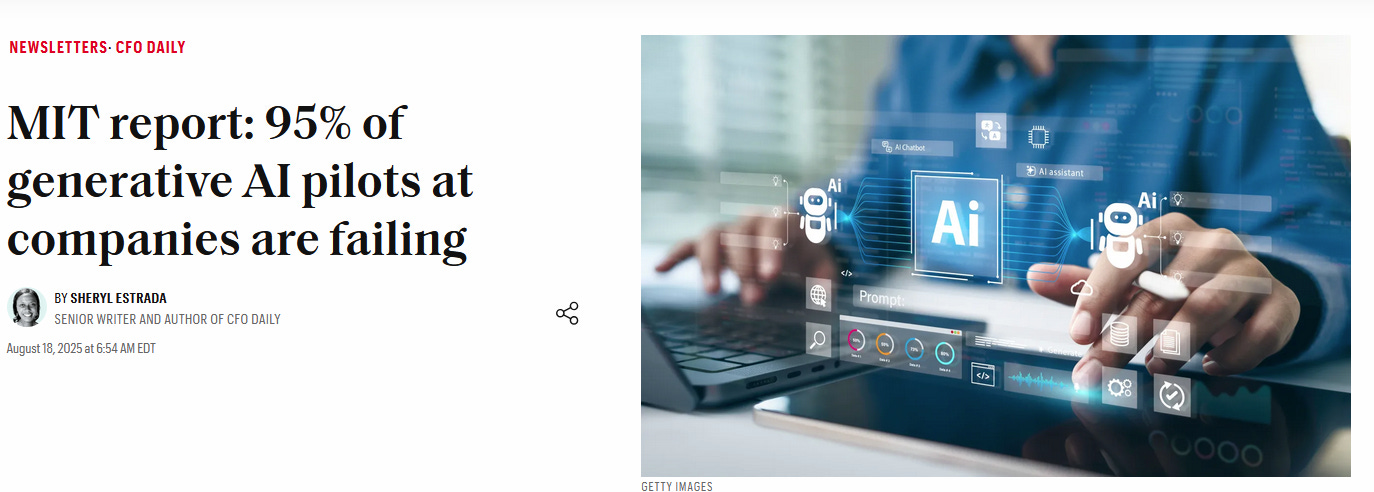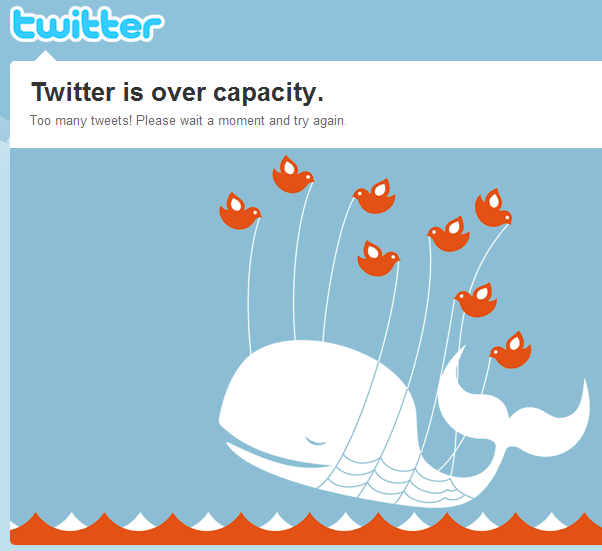Overinflated expectations
Don't believe any of the AI hype - the truth is rarely found in the extremes of the argument
When I arrived at We Are Social back in the spring of 2013, my to-do list was already sizeable. It turned out the team saw me as the solution to several long-standing problems on the team I was joining. Many of these issues related to finances, both on the client side and in relationships with the internal finance team. “Mark will sort that out” had turned into something of a panacea for everyone.
I ended up struggling with the weight of these expectations. Like a star signing to a football team that comes with a hefty transfer fee and a sackload of expectation, my performances didn’t match the hype.
I managed to resolve some of the financial issues, but struggled in every other area. My PR heavy background didn’t translate to the ad agency-style model We Are Social had grown into. It was a steep learning curve that I only really managed to get to grips with when I realised it wasn’t for me.
We live in an era where expectations feel permanently set to “great”.
A change of government will help sort out our long-standing societal problems (it won’t).
Football fanatics online endlessly debate who “won” the transfer window, when the truth is it takes time for new signings to bed in.
And, most notably at the moment, each new model release for generative AI software will be “a significant step along the path to AGI”.
Hype rarely lives up to expectations. Judging by the reviews, Oasis have managed to pull it off with their reunion. However, the list of albums, multi-million-pound transfers, and technological advancements that see the hype dissipate like the bubbles in my daughter’s bath is extensive.
ChatGPT 5 is the latest release to suffer from the hype-bust bubble - it had been in the works for a long time, which always exacerbates the hype cycle. When it was released, the reaction poured in, with no little glee: it’s a failure, it’s the sign of a tech bubble about to burst.
Beyond the hype bubble, the truth is as ever more nuanced. GPT-5 is clearly not rubbish - it’s another iteration of some of the most additive software we’ve seen in a long time. As Ben Evans has pointed out, OpenAI clearly aimed the simplified GPT-5 model picker at removing barriers to entry for new users, aiming to make it just work for the majority of people, while leaving the tinkering to power users.
The GPT-5 hype is also wrapped up in the overall hype around generative AI - technology that the likes of McKinsey and Bain have been tripping over themselves to call “trillion dollar” and “a once-in-a-generation opportunity for executives across industries to shift business boundaries and create enormous value”.
Again, the hype appears to be running up against the cliffs of reality. McKinsey itself wrote about how CEOs had failed to see the benefits of genAI deployment, and MIT added fuel to this fire with a recent report claiming that “95% of generative AI pilots at companies are failing”.
The headline did a lot of heavy lifting here, but delving into the report's write-up shared in Fortune, you can find some nuggets within the hyperbole.
Companies (big and small) found success with the following approach: “pick one pain point, execute well, and partner smartly with companies who use their tools”, the lead author of the report, Aditya Challapally, said.
The report also found a mismatch between all-purpose genAI tools, such as ChatGPT and Copilot, and enterprise workflows - in other words, the tools aren’t specific enough for the use cases.
There was also a sense that bigger ROI can be found “in back-office automation—eliminating business process outsourcing, cutting external agency costs, and streamlining operations”.
Interestingly, the report also found that internal AI builds tended not to be as successful as purchasing specialised tools from expert vendors.
The trouble with generative AI, in addition to the hyperbole driven by the self-reinforcing tech-social-media ecosystem’s need to have a new “big thing” to talk about, is that it feels like magic, to quote Ryan Broderick. Because it feels smart and feels like talking to a human, we expect it to produce magic every time we use it.
Except that, like magic, we grow a little tired of some of its tricks after a while (the action hero meme, etc) and also because, unlike magic, we know precisely how generative AI works.
It’s not magic - it’s a highly sophisticated piece of pattern-matching software. Having ingested essentially the entire internet, it can quickly access its database and provide a highly probable, realistic answer.
The real magic is arguably no different to the magic of Netflix or the magic of Spotify - that a service used by millions of people concurrently in a highly intensive fashion basically stays active the whole time. ChatGPT or Spotify going down are notable events - notable because they happen so infrequently. OG Twitter users will remember the fail whale being a regular feature of early social media marketing and comms efforts.
However, getting drawn into the hype debates, the “bear or bull” cases with generative AI (and AI more broadly), is unhelpful - as is thinking that the magic of genAI can automatically make a material difference to a business's bottom line.
It’s important to remember that:
We are at the very beginning of a new technological cycle - to quote Ben Evans again, you can find plenty of similarities between where we’re at now and the early days of the internet. We know that this technology has the potential to be transformative, but we are not yet certain exactly how. To go back yet again to one of my favourite quotes, “We always overestimate the change that will occur in the next two years and underestimate the change that will occur in the next ten”. Bill Gates also said, “Don’t let yourself be lulled into inaction”. For genAI, you might also want to add, “Don’t let your early experiments convince you it’s a waste of time”. Experiment with software, empower your people to apply it to their work, put guardrails in place, and attempt to measure the impact. Staying nimble will put you in a good place.
There’s rarely anything new in history - as the author said this week, there’s generally always a historical precedent to current events (Labubus are just the new Tamagotchi, for example). The internet, of course, experienced its own “dot com bubble”. Even if we do experience a genAI burst, it’s likely to be a reboot rather than a hard reset.
Any form of technological adoption is hard work -people are resistant to change. Having recently driven a change in social media monitoring services, I can personally attest to this - it’s hard work to learn a new tool. I’m sure there are people in your workplace who struggle to use Microsoft Office efficiently. Change takes time - again, think long-term.
Basically, my advice is to heed the words of Public Enemy and ensure you “Don’t Believe The Hype”. It’ll stand you in good stead for the slower, but arguably more impactful, change that’s likely on the horizon.




